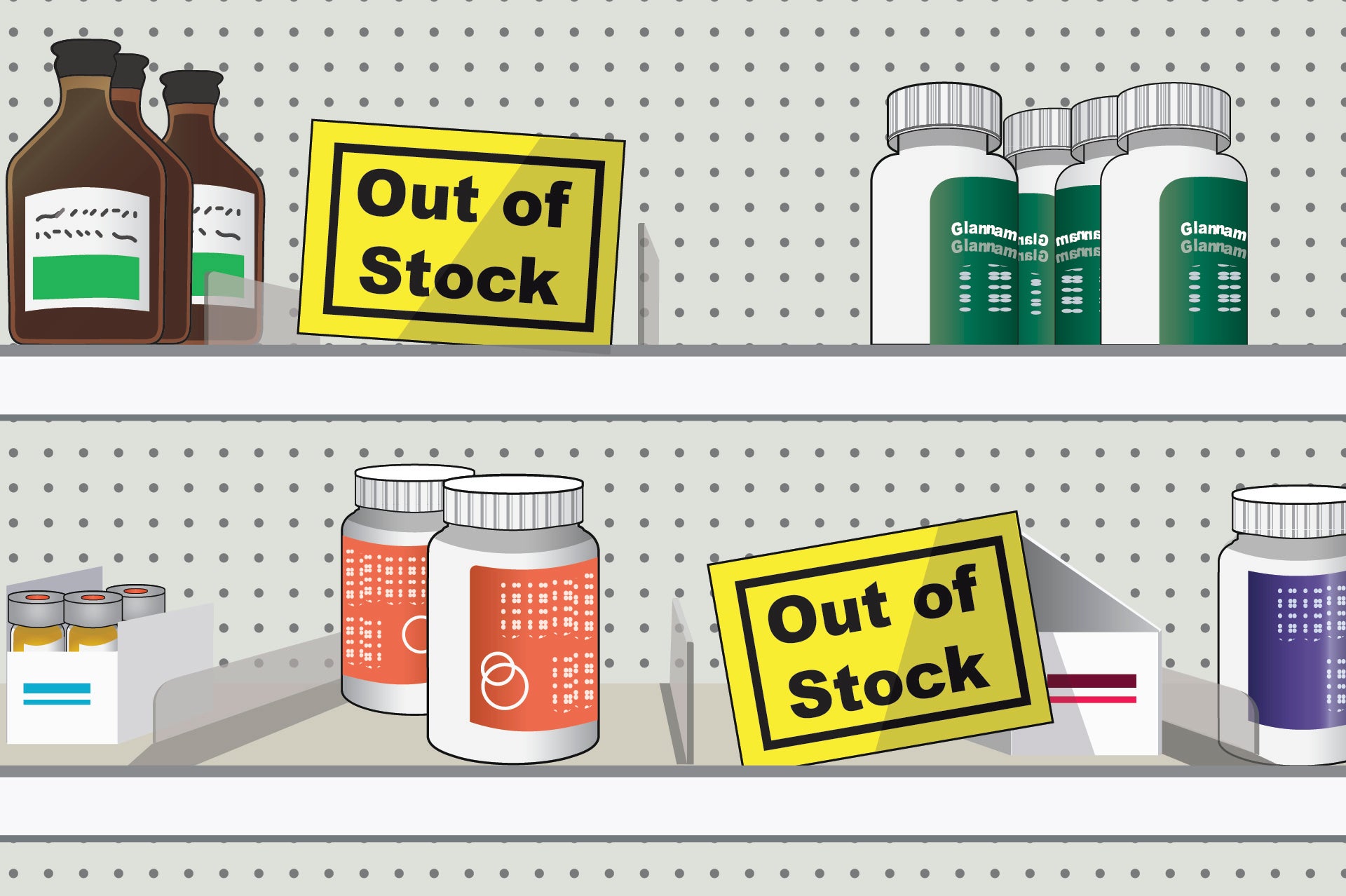Drug shortages keep on growing. Older, injectable medicines are among the most vulnerable
Erin Fox has tracked drug shortages for more than 20 years, and she sees no easy solutions for what has become a record run

Your support helps us to tell the story
From reproductive rights to climate change to Big Tech, The Independent is on the ground when the story is developing. Whether it's investigating the financials of Elon Musk's pro-Trump PAC or producing our latest documentary, 'The A Word', which shines a light on the American women fighting for reproductive rights, we know how important it is to parse out the facts from the messaging.
At such a critical moment in US history, we need reporters on the ground. Your donation allows us to keep sending journalists to speak to both sides of the story.
The Independent is trusted by Americans across the entire political spectrum. And unlike many other quality news outlets, we choose not to lock Americans out of our reporting and analysis with paywalls. We believe quality journalism should be available to everyone, paid for by those who can afford it.
Your support makes all the difference.Erin Fox has tracked drug shortages for more than 20 years, and she sees no easy solutions for what has become a record run.
Total active shortages hit an all-time high of 323 in this year’s first quarter, according to the University of Utah Drug Information Service. That’s up about 86% from a 10-year low of 174 last reached in 2017.
There were 48 new shortages recorded this year through March, according to the data, published by the American Society of Health-System Pharmacists.
Still, Fox also sees positive news developing. The associate chief pharmacy officer at University of Utah Health spoke recently with The Associated Press. The conversation has been edited for clarity and length.
Q: Are there any signs that this is letting up?
A: Unfortunately, no. We haven’t necessarily solved some of the root causes.
We have, overall, relatively few manufacturers. (The U.S. Food and Drug Administration) halted inspections during COVID. Now they’re back, at factories that maybe haven’t been inspected for five or six years. They’re finding some things to fix. Those fixes can take anywhere from 6 to 18 months for production to get fully back on schedule.
Meanwhile, other companies don’t necessarily have the capacity to ramp up production to make up the difference.
It’s not the FDA’s fault. We want them to find those quality deficits. But when FDA goes out looking all at once, it can be pretty disruptive.
Q: What are the typical drugs that land on the shortage list?
A: Generic, injectable hospital drugs or older drugs. They are usually pretty low cost. There’s not a lot of resilience in the supply chain for another company to make up the difference.
We saw all those chemotherapy shortages last year in part because a large factory in India, (the FDA) found quality problems there. They made a large amount of the U.S. supply. The other companies were unable to quickly make up the difference.
Things have definitely improved, but that factory is still not running.
Q: What is one thing about shortages that patients underestimate?
A: They shouldn’t automatically assume they won’t be able to get that treatment.
It might be delayed or they might have to take a capsule instead of a pill. They might have to call their insurance company to ask if they will cover the brand because sometimes (that) is available while the generic is not.
Don’t panic. It’s frustrating to have to do a little bit of work, but usually you will still be able to get a treatment.
Q: Is there any good news?
A: Last year, Congress held four hearings on shortages. They’re still very interested. People are really starting to talk about doing hard work both on the policy side but also maybe a little bit of Congressional action to really try to move this problem forward.
I’ve been leading our efforts to provide data on drug shortages since 2001. This is truly the most interest I’ve ever seen.
___
The Associated Press Health and Science Department receives support from the Howard Hughes Medical Institute’s Science and Educational Media Group. The AP is solely responsible for all content.